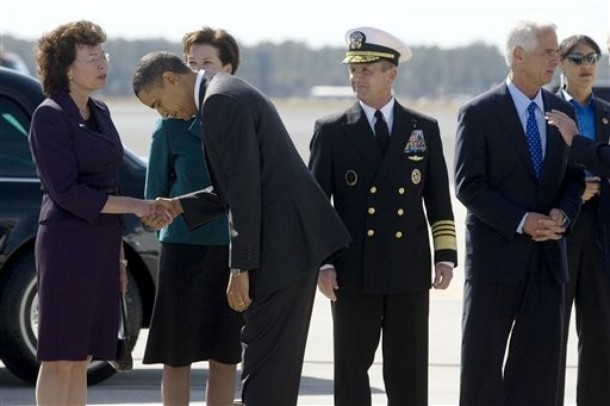Strategy Page counts noses of the various semi-organized hacker armies out in the wild:
Despite spending over a billion dollars a year defending their government networks, Britain recently complained openly of hackers getting into the communications network of the Foreign Office. The government also warned of increasing attacks on British companies. The recent attacks government and corporations were all targeting specific people and data. While China was not mentioned in these official announcements, British officials have often discussed how investigations of recent hacking efforts tended to lead back to China. There is also a strong suspicion, backed up by hacker chatter, that governments are offering large bounties for information from foreign governments. Not information from China, but from everyone else.
China one of many nations taking advantage of the Internet to encourage, or even organize, patriotic Internet users to obtain hacking services. This enables the government to use (often informally) these thousands of hackers to attack targets (foreign or domestic.) These government organizations arrange training and mentoring to improve the skills of group members. Turkey has over 45,000 of hackers organized this way, Saudi Arabia has over 100,000, Iraq has over 40,000, Russia over 100,000 and China, over 400,000. While many of these Cyber Warriors are rank amateurs, even the least skilled can be given simple tasks. And out of their ranks will emerge more skilled hackers, who can do some real damage. These hacker militias have also led to the use of mercenary hacker groups, who will go looking for specific secrets, for a price. Chinese companies are apparently major users of such services, judging from the pattern of recent hacking activity, and the fact that Chinese firms don’t have to fear prosecution for using such methods.
It was China that really pioneered the militia activity. It all began in the late 1990s, when the Chinese Defense Ministry established the “NET Force.” This was initially a research organization, which was to measure China’s vulnerability to attacks via the Internet. Soon this led to examining the vulnerability of other countries, especially the United States, Japan and South Korea (all nations that were heavy Internet users). NET Force has continued to grow. NET Force was soon joined by an irregular civilian militia; the “Red Hackers Union” (RHU). These are nearly half a million patriotic Chinese programmers, Internet engineers and users who wished to assist the motherland, and put the hurt, via the Internet, on those who threaten or insult China. The RHU began spontaneously in 1999 (after the U.S. accidentally bombed the Chinese embassy in Serbia), but the government has assumed some control, without turning the voluntary organization into another bureaucracy. The literal name of the group is “Red Honkers Union,” with Honker meaning “guest” in Chinese. But these were all Internet nerds out to avenge insults to the motherland.
You have to wonder how many script kiddies ever thought they’d end up being government operatives.




